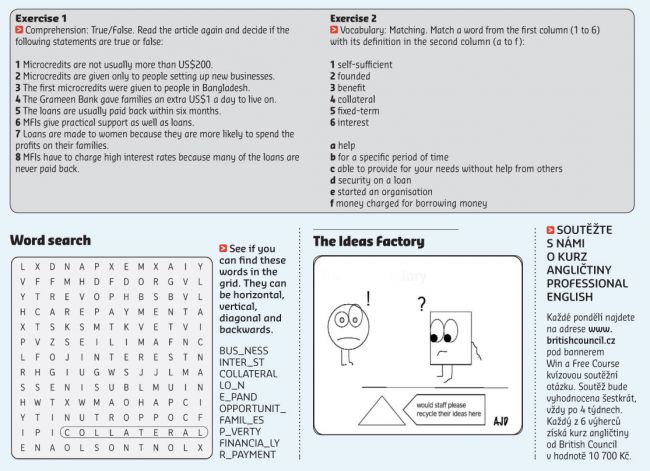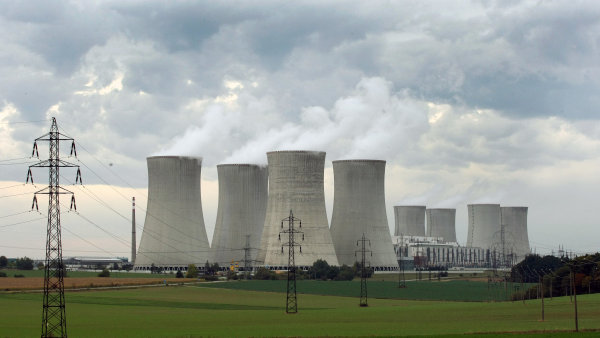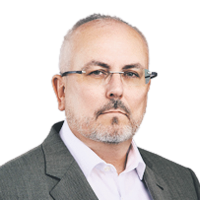Více informací o jazykových kurzech angličtiny najdete na www.britishcouncil.cz
For more business English articles and exercises go to: www.britishcouncil.org/professionals.htm
Microcredits by Carolyn Hardwick
Microcredits - helping families out of poverty
Millions of families around the world have been given a helping hand out of poverty by microcredits. These very small loans, usually less than US$200, have enabled the very poorest people to set up or expand businesses and become self-sufficient.
The microcredit movement started with Professor Muhammad Yunus, who founded the Grameen Bank in Bangladesh. Professor Yunus, who won the 2006 Nobel Peace Prize, used his own money to set up a bank to benefit the poorest people in Bangladesh - families living on less than US$1 a day. There are now hundreds of organisations around the world following his blueprint to help people escape from poverty.
So how does the system work? Local microfinance institutions (MFIs) make contact with families and offer loans, usually to women, to enable them to start or expand a business. These are very poor people who would not normally be able to get credit, but as no collateral is required they can get microcredits. They pay back the loan on
a weekly basis, over six months to a year.
A crucial aspect to the success of the microcredit system is that recipients get local support. The MFIs educate local communities about ways to improve their lives, and offer practical support as well as collecting weekly loan payments. They encourage people to help each other, so that the whole community can pull itself out of poverty. MFIs may also help with literacy and health problems.
Microcredits are mainly given to women. Experience has shown that women are more motivated to improve their children's lives and will spend the money they make on better nutrition and schooling for their children. This may be the first chance they've had to contribute financially to the family, and their status in the home and the local community is raised.
The microcredit system is not charity. The payments are fixed-term loans and interest is charged. The costs of making such small loans, collecting them and giving personal support are high. This is reflected in the interest rates, which range from 15 to 35 per cent. Despite this, the repayment rate is very high, between 95 and 98 per cent, showing that microcredit clients really value this opportunity to leave poverty behind.

 Přidejte si Hospodářské noviny
mezi své oblíbené tituly
na Google zprávách.
Přidejte si Hospodářské noviny
mezi své oblíbené tituly
na Google zprávách.
Tento článek máteje zdarma. Když si předplatíte HN, budete moci číst všechny naše články nejen na vašem aktuálním připojení. Vaše předplatné brzy skončí. Předplaťte si HN a můžete i nadále číst všechny naše články. Nyní první 2 měsíce jen za 40 Kč.
- Veškerý obsah HN.cz
- Možnost kdykoliv zrušit
- Odemykejte obsah pro přátele
- Ukládejte si články na později
- Všechny články v audioverzi + playlist





